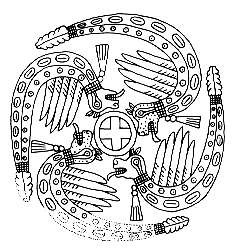Please pay particular attention to articles 1, 6, and 11, and 15
UNPO is represented in the United Nations.
Universal Declaration of the Rights of Peoples
Preamble
Whereas the Universal Declaration of Human Rights and the International Covenant on Civil and Political
Rights and the International Covenant on Economic, Social and Cultural Rights (jointly referred to as the International Bill
of Human Rights) are universal and should be universally respected and implemented,
Whereas not all states respect human rights, including the right to self-determination of peoples, and the
International Bill of Human Rights has not yet achieved universal implementation,
Whereas human rights cannot be fully realized without the recognition of the right to cultural, national,
linguistic, and ethnic identity of individuals and peoples,
Whereas the coexistence of different peoples is a necessary condition for the preservation and development
of all cultures, languages, and spiritual traditions,
Whereas the diversity of peoples, cultures, languages, and spiritual traditions constitutes the genuine
richness of human existence, guaranteeing the continued survival and development of humankind, just as preservation of the
variety of natural species ensures continuation of life on Earth,
Whereas in the history of humankind, peoples have endured longer than the states of the world,
Whereas the attempts to force people to adopt new identities to suit the political objectives of states
have led to violations of human rights and the rights of peoples,
Therefore, the General Assembly of the Unrepresented Nations and Peoples Organisation reaffirms the universal
human rights and the rights of peoples as inalienable rights in international law and declares:
Article 1
All peoples have the equal right to self-determination. According to this right they freely determine their
political status and freely determine their economic, social and cultural development. States shall respect this right and
the principle of territorial integrity shall not unilaterally form an obstacle to its implementation.
Article 2
All peoples have the equal right to live in dignity and to be respected. It is the duty of all states to
treat equally and justly all peoples living within their respective jurisdictions.
Article 3
All peoples have the right to their own abode, within their ancestral territory, where they can exercise
their right to self-determination. Peoples shall not be expelled from their respective territories. These territories or portions
thereof shall not be taken from them, annexed or otherwise altered by force or without the agreement of the people or peoples
concerned.
Article 4
All peoples have the right to return to their own abode if they have been expelled therefrom or their territories
have been taken in violation of Article 3.
Article 5
All peoples have the right to sovereignty over the natural wealth and resources within their territories.
All peoples also have the right to intellectual property. They are obliged to respect the equal right to natural wealth and
resources of all other peoples.
Article 6
All peoples have the right to organize and to form legitimate representative bodies. This may, if they so
wish, include their diaspora.
Article 7
In accordance with the exercise of their right to self-determination, peoples should, if they so desire,
exercise self-government and create appropriate organs for self-government within their territory.
Article 8
The right to self-determination includes the right to independent statehood where the exercise of the right
to self-determination cannot be implemented without establishing an independent state.
Article 9
All peoples have the right to self-preservation and physical existence. Peoples with small populations shall
not be involuntarily subjected to harmful demographic policies, such as population transfers and coercive birth controls.
Article 10
All peoples have the right to live in peace. States shall not use force against peoples peacefully exercising
their right to self-determination. Peoples have the right to defend themselves against such use of force against them.
Article 11
All peoples have the right to security and international legal protection. They shall be protected against
genocide and illegal use of force, including terrorism, against them.
Article 12
All peoples have the right to ecological security and protection of their natural environment.
Article 13
All peoples have the right not to allow the production, testing, storage, transportation and use of weapons
of mass destruction, including nuclear, chemical and bacteriological weapons, on their territory and the right to strive for
the demilitarisation of their territory.
Article 14
All peoples have the right to development as well as the right to preserve and develop their traditional
way of life.
Article 15
All peoples have the right to self-identification and have the right to know, learn, preserve and develop
their own culture, history, language, religion and customs.
Article 16
All peoples have the right to be informed about policies of the state and should be involved in discussions
on an international level on matters that affect their existence and their rights.
Article 17
All peoples have the right to demand from state and international organisations the observance and protection
of their rights, as listed in this Declaration.
Article 18
All peoples shall respect the equal rights of all other peoples and therefore abide by all the provisions
of this Declaration with respect to all such peoples.
Article 19
The provisions of this Declaration should be interpreted in the context of the international law of human
rights, including, in particular, the right to self-determination of peoples.
Adopted by the UNPO VI General Assembly in Tallinn, Estonia, February 17th, 2001

